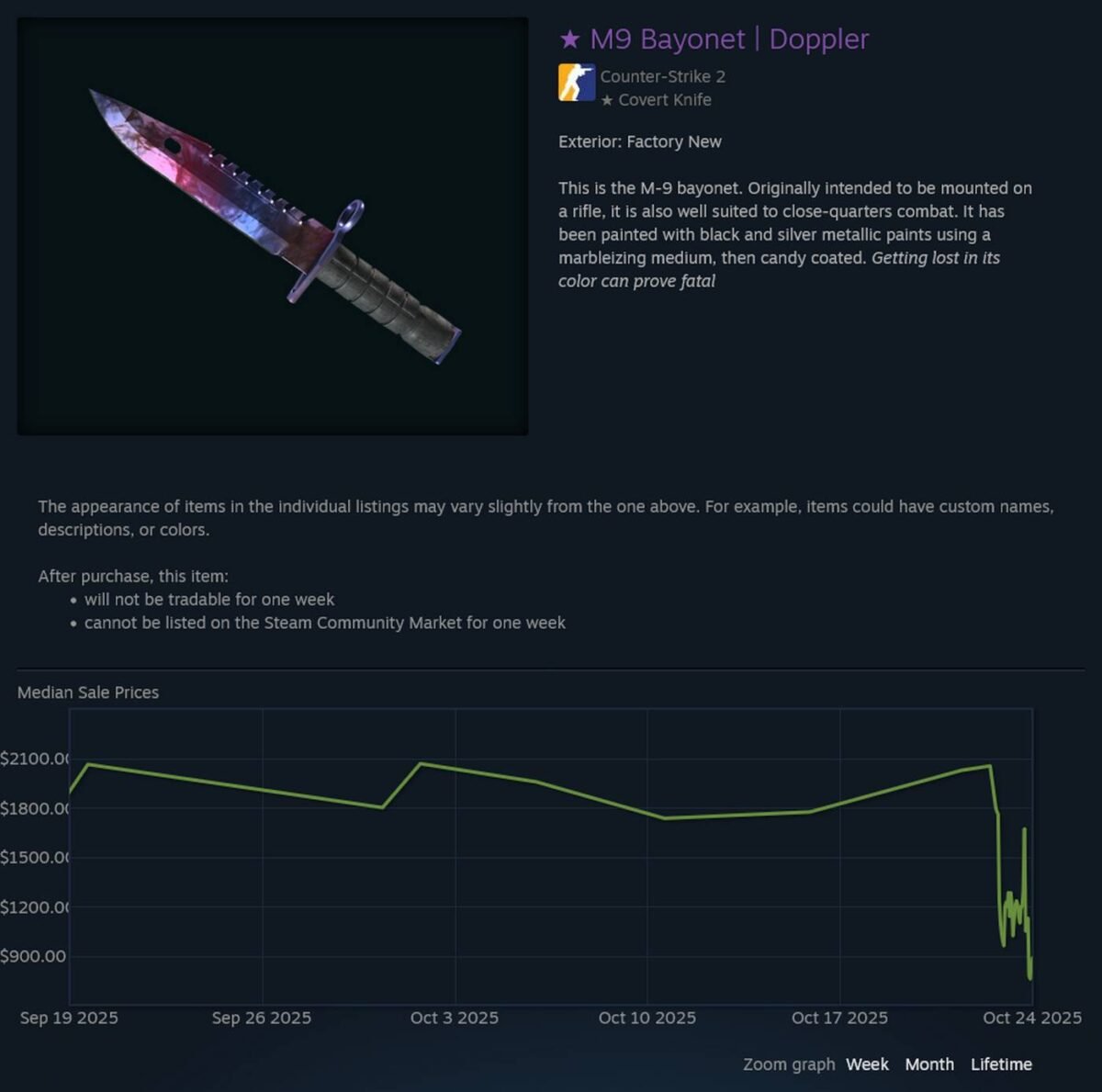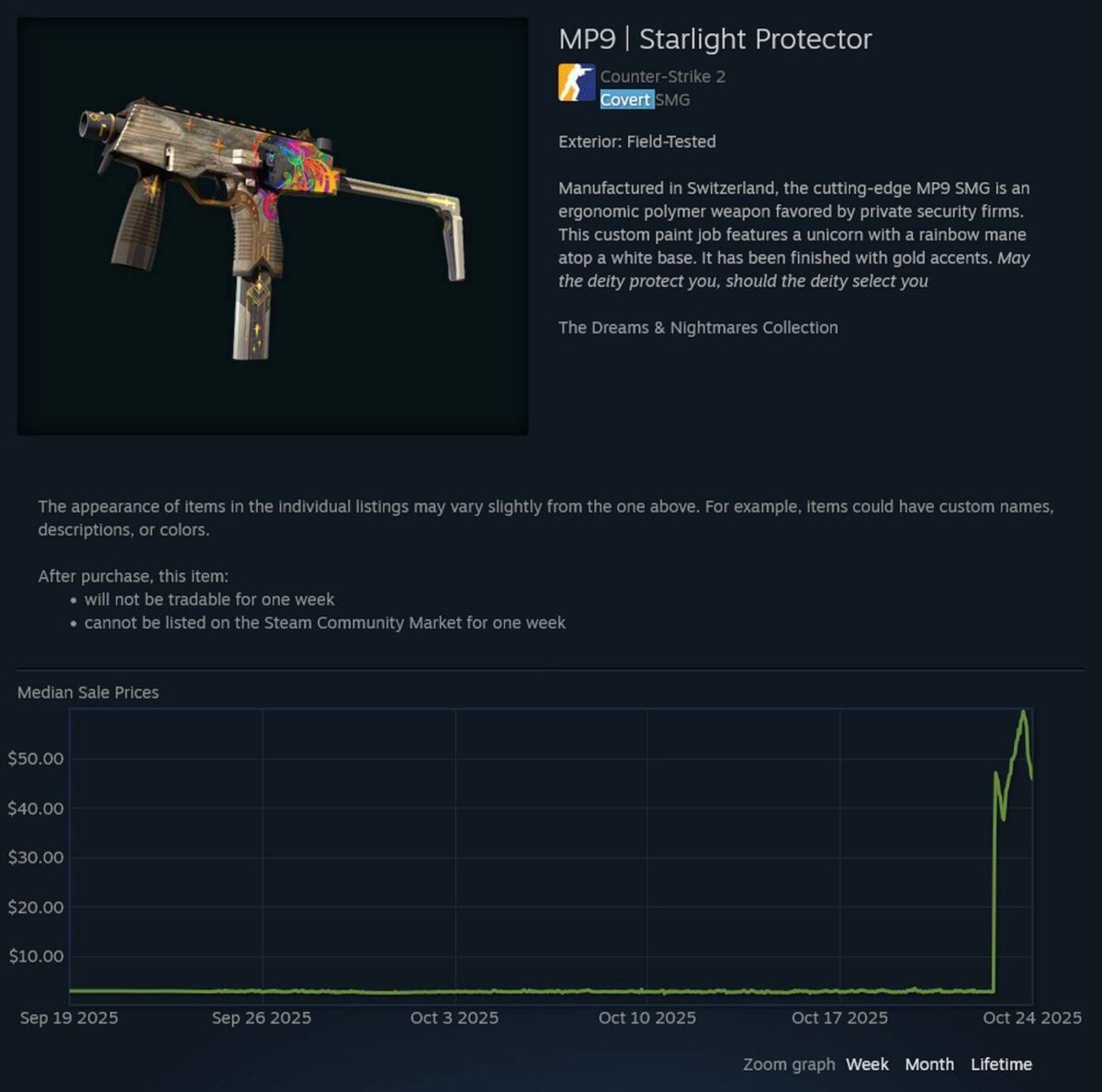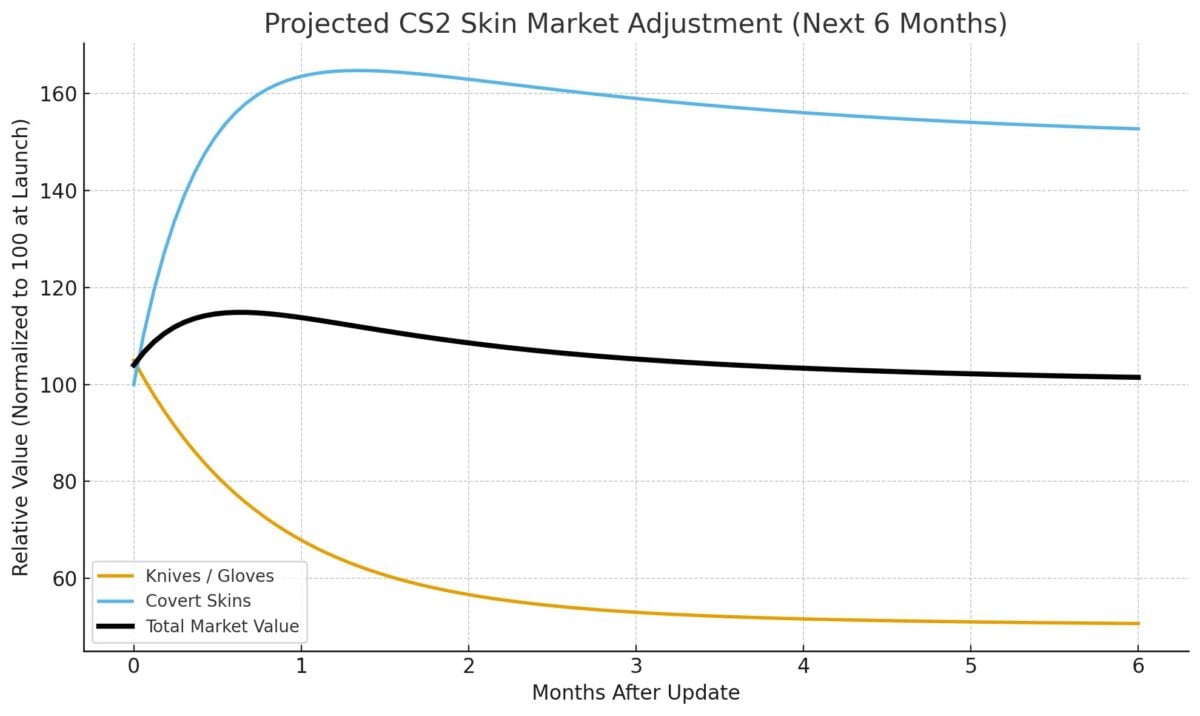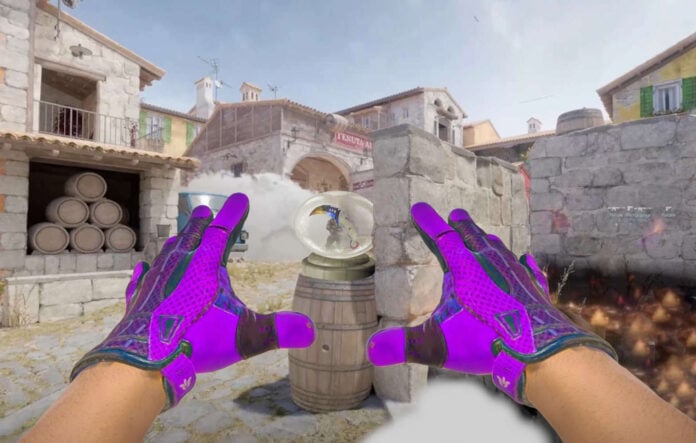Following Counter-Strike 2’s (CS2) skin value crash, many users heavily invested in the market have started to speculate on the best course of action. Some who lost faith in the market sold all their inventory to limit losses, while others saw this as an opportunity to buy the dip. What’s the right course of action remains to be seen, though some projections are giving us a hint at what could come.
For those who didn’t follow, on October 23, Valve released a CS2 patch that introduced the Trade Up Contract, allowing players to exchange five Covert (red) skins for a knife or glove. This meant that previously expensive knives and gloves could be simply crafted, rather than gambled for using loot boxes. As a result, CS2’s total skin market cap fell by roughly $2 billion (30%), as panicked speculators scrambled to dump their stock before things got worse.
For instance, on the Steam marketplace, the M9 Bayonet | Doppler dropped from $2,053 to $780. Needless to say, those who have been hoarding a lot of such items saw the value of their inventory crash into oblivion. Some traders reported a 60% – 70% drop in their net worth. Yep, some have put their savings into this.


At the same time, the Covert items needed to craft these knives and gloves saw their value jump as users began buying them to make said items. The MP9 | Starlight Protector, for example, went to the moon, marking a 2,100% price increase in the span of a day. Those who opted to keep a good amount of Covert (Red rarity) weapons saw their inventory value skyrocket. As the saying goes, one man’s loss is another man’s gain.
Unsurprisingly, the reactions to CS2’s update were polarising to say the least. Many skin traders expressed their anger towards Valve, accusing the developer of ‘killing’ their investments, while players celebrated cheaper access to rare skins. The traders’ negative sentiment is understandable since the change directly impacts their bottom line; likewise, player joy is justified, considering that skins were made to be enjoyed in the game, not on a trading platform.
Understandably, everyone is now trying to guess and predict how this situation will evolve, be it to take advantage of it or limit their losses. @SAC_IG on X did some digging and has estimated that knife and glove skins could end up costing around 50% of their previous value, while the Covert items used to craft them are expected to jump above 60% before settling around 50%.

In other words, @SAC_IG predicts that this is just a market correction, where the value lost by knives and gloves is simply being transferred to Covert items. In the end, the market may well stabilise in about three months at about -5 to -10%, which is considerably less shocking than the early -30%.
That said, the situation is still freshly developing, and no crystal ball will accurately predict the outcome of this saga. What we know is that this is not the first time an update has shocked the market. Looking at the sordid history of CS skins, we note July 2016’s ban of third-party CS:GO skin gambling sites and July 2025’s introduction of the 7-day trade protection, both of which had a measurable impact – just not to the same level. After the initial panic, most inventories and market values returned close to their previous levels.
It is also worth mentioning that as long as one doesn’t sell their skins, there is effectively no loss, yet. So, waiting for the market to recuperate seems to be a good choice in the hope of it going back up.
Recent history suggests that this crash will gradually recover over the long term, with some forecasting a return to around $5 billion by next year. That’s assuming Valve doesn’t make any new drastic changes, of course.

